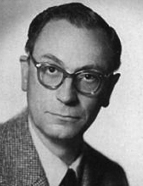

In this context, Hourcade was asked to translate several of Salazar's speeches that might interest Maréchal Pétain, in a book that was written at the end of 1938 and published in France by publisher Flammarion with a date of February 1939, i.e., before the start of the Franco-German war. A special issue of Cahiers du Sud was also published in 1940 regarding the Congress, with the support of the SPN and António Ferro, and an introduction by Raymond Warnier (then director of the Lisbon Institut Français ) and a preface by Salazar himself. In this issue, Pierre Hourcade wrote a valuable article entitled La vocation universaliste du Portugal [The universalist vocation of Portugal], a topic dear to Portuguese historians such as Jaime Cortesão and Magalhães Godinho. In this text, the author characterizes the country of Camões by the tension between permanence and movement, by "being" rather than "doing", emphasising that the Discoveries did not depend solely on geographical and historical constraints, but rather on the definitive need to be "présent au monde". He goes on to make a contrast between the concept of empire and that of expansion, thus differentiating the transitory from the lasting, before emphasising the affective propensity of the Portuguese, even though they were attached to their homeland. However, in Hourcade's opinion, universalism seems to stem from the originally Catholic concept of solidary human fraternity on Earth.
In Temas de literatura portuguesa (1978) [Portuguese Literature Themes], a book that brings together some of his diverse productions translated into Portuguese, Pierre Hourcade wrote a brief preface in which he recalls his journey as a Lusitanianist, emphasising his desire to write about the literature of Portugal in order to "break the indifference of the cultured French public towards Portuguese authors, which is due to ignorance", considering himself as an "initiator" and a "revealer". In the first essay Panorama da literatura portuguesa [Panorama of Portuguese literature], the author insists on the national originality of literary production, which resisted a possible suffocation by "powerful Spain", and again discovers, throughout the ages, a search for balance between "narrow particularism and the aspiration to the universal", somewhere between "the national vocation" and "the surrounding world". He gave the examples of Camões, Eça de Queiroz— creator of a "Portuguese novel of universal interest"— and Pessoa, among others. Having studied the "French influences on Portuguese literature", he considered that broad European culture had enriched Portuguese literature and that literatures that close in on themselves become stagnant. He returned to this idea in Eça de Queirós e a França [Eça de Queirós and France], arguing that the author of Os Maias [The Maias] was not only not a denationalised writer, but, on the contrary, found in French culture "the means to regenerate national culture".
This work is financed by national funds through FCT - Foundation for Science and Technology, I.P, in the scope of the projects UIDB/04311/2020 and UIDP/04311/2020.
